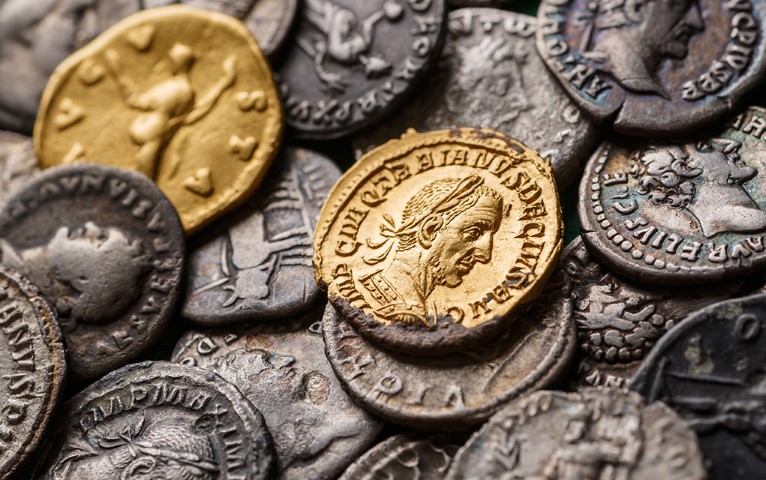10 But Paul replied, “No! This is the official Roman court, so I ought to be tried right here. You know very well I am not guilty of harming the Jews. 11 If I have done something worthy of death, I don’t refuse to die. But if I am innocent, no one has a right to turn me over to these men to kill me. I appeal to Caesar!” 12 Festus conferred with his advisers and then replied, “Very well! You have appealed to Caesar, and to Caesar you will go!”
13 A few days later King Agrippa arrived with his sister, Bernice,[a] to pay their respects to Festus. 14 During their stay of several days, Festus discussed Paul’s case with the king. “There is a prisoner here,” he told him, “whose case was left for me by Felix. 15 When I was in Jerusalem, the leading priests and Jewish elders pressed charges against him and asked me to condemn him. 16 I pointed out to them that Roman law does not convict people without a trial. They must be given an opportunity to confront their accusers and defend themselves.
17 “When his accusers came here for the trial, I didn’t delay. I called the case the very next day and ordered Paul brought in. 18 But the accusations made against him weren’t any of the crimes I expected. 19 Instead, it was something about their religion and a dead man named Jesus, who Paul insists is alive. 20 I was at a loss to know how to investigate these things, so I asked him whether he would be willing to stand trial on these charges in Jerusalem. 21 But Paul appealed to have his case decided by the emperor. So I ordered that he be held in custody until I could arrange to send him to Caesar.”
22 “I’d like to hear the man myself,” Agrippa said. And Festus replied, “You will—tomorrow!”
Acts 25:10-22 (NLT) 中文
Paul on Trial
This is one long process that started in Jerusalem with the Jewish leaders accusing Paul of religious crimes. Each trial presents an opportunity to testify about Christ: share his testimony, his call to the gentiles or the gospel. God continues to intervene to foil plots to kill him. He’s been in Caesarea now for 2 years where he was tried by Roman Governor Felix. He delayed a verdict and kept Paul in custody out of fear of the Jews. Festus has now taken over and inherited Paul’s case – which he’s heard. He just asked Paul if he’d go to Jerusalem to stand trial.
Paul is no fool
Paul is no fool. He knows the Jews are intent on killing him and would, as they planned previously (v3) , kill him on the way to Jerusalem. He rejects the offer. But his only recourse is to appeal to Caesar. He must have thought this through because it would mean going to Rome. This appeal will take a long time and continue to disrupt his original ministry of preaching and establishing churches in Asia.
But he knows the prophecy (Acts 9:15 and 23:11) that he would share the good news with kings. He probably expects God will use him to establish churches somehow in his places of custody…and Rome (which He does).
Drawing the king’s hearts?
Felix shares Paul’s situation with King Agrippa who is interested to hear Paul – and maybe what he preaches. “Agrippa was known as an expert in Jewish customs and religious matters. Though he did not have jurisdiction over Paul in this case, his hearing of the matter would be helpful for Festus.” (enduringword.com) Is the Lord drawing these leaders to Himself? Let’s see in the following passages.
RЯeflection
- Paul demonstrates that though we must submit to authorities (Romans 13:1-6) and pray for them, the law exists for the benefit of all citizens. We are called to abide by it- but also to benefit from it properly, and under submission to God’s direction. “God, who has appointed courts of law, also gives his people liberty to use them lawfully.” (Calvin, cited in Hughes – Enduringword.com) For more on this topic, click here.

